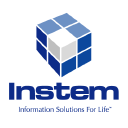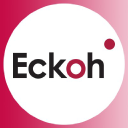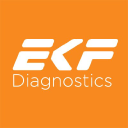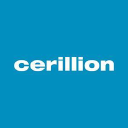INS.L

Instem plc
INS.L
(1.2)829,00 GBp
13.18% ROA
10.6% ROE
55.92x PER
199.402.686,00 GBp
3.76% DER
0% Yield
5.54% NPM
Instem plc Stock Analysis
Instem plc Fundamental Analysis
Fundamental analysis in stock investing is like studying the foundation of a house before buying it. It involves looking at a company's financial health, like its earnings, assets, and debts, to determine if it's a good investment based on its fundamental strength and potential for growth.
| # | Analysis | Rating |
|---|---|---|
| 1 |
ROA
The stock's ability to make a lot of money from its assets shows that it is very profitable, making it a good choice for people who want to invest and make a lot of money. |
|
| 2 |
DER
The stock has a low debt to equity ratio (2%), which means it has a small amount of debt compared to the ownership it holds |
|
| 3 |
ROE
ROE in an average range (9.33%) suggests satisfactory profitability and decent utilization of shareholders' equity. |
|
| 4 |
PBV
The stock's elevated P/BV ratio (3.51x) raises concerns about its overvaluation, making it an imprudent choice for investors seeking value. |
|
| 5 |
Revenue Growth
Company's revenue has remained stagnant over the past three years, indicating a lack of growth and making it a less favorable option. |
|
| 6 |
Net Profit Growth
Despite the passage of five years, this company's net profit has not shown any improvement, highlighting a lack of growth and making it a less appealing investment prospect. |
|
| 7 |
Assets Growth
Company has experienced no growth in revenue over the past three years, suggesting limited profitability and making it a less desirable investment opportunity. |
|
| 8 |
Graham Number
The Graham number analysis indicates that this company's stock price is likely overpriced, raising concerns about its investment potential. |
|
| 9 |
Dividend Growth
The company's dividend growth has been flat for the past three years, raising concerns for potential investors seeking reliable returns. |
|
| 10 |
Dividend
Investors should be cautious as the company hasn't distributed dividends in the last three years, possibly indicating financial challenges. |
|
| 11 |
Buffet Intrinsic Value
The company's stock shows signs of being overvalued (58) according to Warren Buffett's formula, indicating a potential downside as its market price exceeds its estimated intrinsic value. |
Instem plc Technical Analysis
Technical analysis in stock investing is like reading the patterns on a weather map to predict future weather conditions. It involves studying past stock price movements and trading volumes to make predictions about where a stock's price might go next, without necessarily looking at the company's financial health.
| # | Analysis | Recommendation |
|---|---|---|
| 1 | Awesome Oscillator | Hold |
| 2 | MACD | Buy |
| 3 | RSI | Hold |
| 4 | Stoch RSI | Hold |
Instem plc Price Chart
Financial Statements
Financial statements are like report cards for companies. They show how much money a company makes (income statement), what it owns and owes (balance sheet), and where it spends its money (cash flow statement), helping stock investors understand if a company is healthy and worth investing in.
Income Statements
An income statement for a company is like a scoreboard for its profits and losses. It shows how much money the company made (revenue) and how much it spent to make that money (expenses), helping stock investors see if a company is making a profit or not.
Revenue in stock investing is the total amount of money a company earns from its sales, and it's a key factor that investors consider to assess a company's financial performance and growth potential.
| Year | Revenue | Growth |
|---|---|---|
| 2009 | 9.989.000 | |
| 2010 | 10.001.000 | 0.12% |
| 2011 | 10.793.000 | 7.34% |
| 2012 | 10.661.000 | -1.24% |
| 2013 | 11.361.000 | 6.16% |
| 2014 | 13.429.000 | 15.4% |
| 2015 | 16.321.000 | 17.72% |
| 2016 | 18.319.000 | 10.91% |
| 2017 | 21.668.000 | 15.46% |
| 2018 | 22.705.000 | 4.57% |
| 2019 | 25.717.000 | 11.71% |
| 2019 | 25.717.000 | 0% |
| 2020 | 28.217.000 | 8.86% |
| 2021 | 46.017.000 | 38.68% |
| 2022 | 58.880.000 | 21.85% |
| 2023 | 59.484.000 | 1.02% |
Research and Development Expenses are the costs a company incurs to create and improve its products or services, which can be important for investors to evaluate a company's innovation and potential for future growth.
| Year | Research and Development Expenses | Growth |
|---|---|---|
| 2009 | 1.595.000 | |
| 2010 | 1.287.000 | -23.93% |
| 2011 | 1.384.000 | 7.01% |
| 2012 | 0 | 0% |
| 2013 | 0 | 0% |
| 2014 | 0 | 0% |
| 2015 | 0 | 0% |
| 2016 | 0 | 0% |
| 2017 | 0 | 0% |
| 2018 | 0 | 0% |
| 2019 | 0 | 0% |
| 2019 | 1.700.000 | 100% |
| 2020 | 2.200.000 | 22.73% |
| 2021 | 2.623.000 | 16.13% |
| 2022 | 4.448.000 | 41.03% |
| 2023 | 5.000.000 | 11.04% |
General and Administrative Expenses are the costs a company incurs to run its day-to-day operations, such as office rent, salaries, and utilities, which investors consider to understand a company's overall efficiency and management effectiveness.
| Year | General and Administrative Expenses | Growth |
|---|---|---|
| 2009 | 0 | |
| 2010 | 0 | 0% |
| 2011 | 0 | 0% |
| 2012 | 0 | 0% |
| 2013 | 0 | 0% |
| 2014 | 0 | 0% |
| 2015 | 0 | 0% |
| 2016 | 0 | 0% |
| 2017 | 0 | 0% |
| 2018 | 413.000 | 100% |
| 2019 | 106.000 | -289.62% |
| 2019 | 106.000 | 0% |
| 2020 | 149.000 | 28.86% |
| 2021 | 95.000 | -56.84% |
| 2022 | 0 | 0% |
| 2023 | 0 | 0% |
EBITDA stands for Earnings Before Interest, Taxes, Depreciation, and Amortization. It is a measure that helps stock investors analyze a company's profitability by looking at its earnings without considering certain expenses. This helps to get a clearer picture of the company's financial performance and its ability to generate cash flow.
| Year | EBITDA | Growth |
|---|---|---|
| 2009 | 3.057.000 | |
| 2010 | 2.571.000 | -18.9% |
| 2011 | 2.417.000 | -6.37% |
| 2012 | 1.814.000 | -33.24% |
| 2013 | 1.912.000 | 5.13% |
| 2014 | 1.758.000 | -8.76% |
| 2015 | 2.509.000 | 29.93% |
| 2016 | 906.000 | -176.93% |
| 2017 | 3.148.000 | 71.22% |
| 2018 | 3.672.000 | 14.27% |
| 2019 | 1.353.000 | -171.4% |
| 2019 | 1.549.000 | 12.65% |
| 2020 | 5.354.000 | 71.07% |
| 2021 | 8.327.000 | 35.7% |
| 2022 | 11.583.000 | 28.11% |
| 2023 | 6.300.000 | -83.86% |
Gross profit is the money a company makes from selling its products or services after subtracting the cost of producing or providing them, and it is an important measure for investors to understand a company's profitability.
| Year | Gross Profit | Growth |
|---|---|---|
| 2009 | 9.989.000 | |
| 2010 | 10.001.000 | 0.12% |
| 2011 | 10.793.000 | 7.34% |
| 2012 | 5.661.000 | -90.66% |
| 2013 | 6.154.000 | 8.01% |
| 2014 | 7.047.000 | 12.67% |
| 2015 | 8.900.000 | 20.82% |
| 2016 | 9.274.000 | 4.03% |
| 2017 | 11.487.000 | 19.27% |
| 2018 | 12.289.000 | 6.53% |
| 2019 | 12.108.000 | -1.49% |
| 2019 | 12.108.000 | 0% |
| 2020 | 11.709.000 | -3.41% |
| 2021 | 19.099.000 | 38.69% |
| 2022 | 24.443.000 | 21.86% |
| 2023 | 23.004.000 | -6.26% |
Net income in stock investing is like the money a company actually gets to keep as profit after paying all its bills, and it's an important measure to understand how well a company is doing financially.
| Year | Net Profit | Growth |
|---|---|---|
| 2009 | 1.706.000 | |
| 2010 | 901.000 | -89.35% |
| 2011 | 1.006.000 | 10.44% |
| 2012 | 1.044.000 | 3.64% |
| 2013 | 529.000 | -97.35% |
| 2014 | 150.000 | -252.67% |
| 2015 | -428.000 | 135.05% |
| 2016 | 1.058.000 | 140.45% |
| 2017 | 1.094.000 | 3.29% |
| 2018 | 1.470.000 | 25.58% |
| 2019 | -923.000 | 259.26% |
| 2019 | -923.000 | 0% |
| 2020 | 2.274.000 | 140.59% |
| 2021 | 1.678.000 | -35.52% |
| 2022 | 4.697.000 | 64.28% |
| 2023 | -62.000 | 7675.81% |
EPS, or earnings per share, is a measure that shows how much profit a company has earned for each outstanding share of its stock, and it is important for stock investors as it helps understand the profitability of a company and compare it with other companies in the market.
| Year | Earning per Share (EPS) | Growth |
|---|---|---|
| 2009 | 0 | |
| 2010 | 0 | 0% |
| 2011 | 0 | 0% |
| 2012 | 0 | 0% |
| 2013 | 0 | 0% |
| 2014 | 0 | 0% |
| 2015 | 0 | 0% |
| 2016 | 0 | 0% |
| 2017 | 0 | 0% |
| 2018 | 0 | 0% |
| 2019 | 0 | 0% |
| 2019 | 0 | 0% |
| 2020 | 0 | 0% |
| 2021 | 0 | 0% |
| 2022 | 0 | 0% |
| 2023 | 0 | 0% |
Cashflow Statements
Cashflow statements show the movement of money in and out of a company, helping stock investors understand how much money a company makes and spends. By examining cashflow statements, investors can assess if a company is generating enough cash to pay its bills, invest in growth, and provide returns to stockholders.
Free cash flow is the leftover cash that a company generates after covering its operating expenses and capital expenditures, which is important for stock investors as it shows how much money a company has available to invest in growth, pay dividends, or reduce debt.
| Year | Free Cashflow | Growth |
|---|---|---|
| 2009 | 3.047.000 | |
| 2010 | -657.000 | 563.77% |
| 2011 | 59.000 | 1213.56% |
| 2012 | -564.000 | 110.46% |
| 2013 | 1.375.000 | 141.02% |
| 2014 | -11.000 | 12600% |
| 2015 | 1.779.000 | 100.62% |
| 2016 | -876.000 | 303.08% |
| 2017 | -242.000 | -261.98% |
| 2018 | 561.000 | 143.14% |
| 2019 | 3.988.000 | 85.93% |
| 2019 | 997.000 | -300% |
| 2020 | 5.528.000 | 81.96% |
| 2021 | 6.818.000 | 18.92% |
| 2022 | 4.358.000 | -56.45% |
| 2023 | 679.500 | -541.35% |
Operating cash flow represents the cash generated or consumed by a company's day-to-day operations, excluding external investing or financing activities, and is crucial for stock investors as it shows how much cash a company is generating from its core business operations.
| Year | Operating Cashflow | Growth |
|---|---|---|
| 2009 | 3.159.000 | |
| 2010 | -185.000 | 1807.57% |
| 2011 | 502.000 | 136.85% |
| 2012 | -78.000 | 743.59% |
| 2013 | 2.044.000 | 103.82% |
| 2014 | 482.000 | -324.07% |
| 2015 | 2.504.000 | 80.75% |
| 2016 | 127.000 | -1871.65% |
| 2017 | 1.392.000 | 90.88% |
| 2018 | 2.203.000 | 36.81% |
| 2019 | 5.423.000 | 59.38% |
| 2019 | 1.355.750 | -300% |
| 2020 | 6.941.000 | 80.47% |
| 2021 | 9.200.000 | 24.55% |
| 2022 | 7.872.000 | -16.87% |
| 2023 | 709.000 | -1010.3% |
Capex, short for capital expenditures, refers to the money a company spends on acquiring or upgrading tangible assets like buildings, equipment, or technology, which is important for stock investors as it indicates how much a company is investing in its infrastructure to support future growth and profitability.
| Year | Capital Expenditure | Growth |
|---|---|---|
| 2009 | 112.000 | |
| 2010 | 472.000 | 76.27% |
| 2011 | 443.000 | -6.55% |
| 2012 | 486.000 | 8.85% |
| 2013 | 669.000 | 27.35% |
| 2014 | 493.000 | -35.7% |
| 2015 | 725.000 | 32% |
| 2016 | 1.003.000 | 27.72% |
| 2017 | 1.634.000 | 38.62% |
| 2018 | 1.642.000 | 0.49% |
| 2019 | 1.435.000 | -14.43% |
| 2019 | 358.750 | -300% |
| 2020 | 1.413.000 | 74.61% |
| 2021 | 2.382.000 | 40.68% |
| 2022 | 3.514.000 | 32.21% |
| 2023 | 29.500 | -11811.86% |
Balance Sheet
Balance sheets provide a snapshot of a company's financial health and its assets (such as cash, inventory, and property) and liabilities (like debts and obligations) at a specific point in time. For stock investors, balance sheets help assess the company's overall worth and evaluate its ability to meet financial obligations and support future growth.
Equity refers to the ownership interest or stake that shareholders have in a company, representing their claim on its assets and earnings after all debts and liabilities are paid.
| Year | Equity | Growth |
|---|---|---|
| 2009 | 852.000 | |
| 2010 | 4.548.000 | 81.27% |
| 2011 | 5.414.000 | 16% |
| 2012 | 4.995.000 | -8.39% |
| 2013 | 4.973.000 | -0.44% |
| 2014 | 5.419.000 | 8.23% |
| 2015 | 6.613.000 | 18.06% |
| 2016 | 12.784.000 | 48.27% |
| 2017 | 14.225.000 | 10.13% |
| 2018 | 16.395.000 | 13.24% |
| 2019 | 16.799.000 | 2.4% |
| 2020 | 33.236.000 | 49.46% |
| 2021 | 47.301.000 | 29.74% |
| 2022 | 53.357.000 | 11.35% |
| 2023 | 54.641.000 | 2.35% |
Assets represent the valuable resources that a company owns, such as cash, inventory, property, and equipment, and understanding a company's assets helps investors assess its value and potential for generating future profits.
| Year | Assets | Growth |
|---|---|---|
| 2009 | 11.124.000 | |
| 2010 | 11.899.000 | 6.51% |
| 2011 | 15.124.000 | 21.32% |
| 2012 | 15.478.000 | 2.29% |
| 2013 | 18.808.000 | 17.71% |
| 2014 | 19.890.000 | 5.44% |
| 2015 | 20.824.000 | 4.49% |
| 2016 | 30.942.000 | 32.7% |
| 2017 | 31.869.000 | 2.91% |
| 2018 | 30.140.000 | -5.74% |
| 2019 | 34.796.000 | 13.38% |
| 2020 | 53.763.000 | 35.28% |
| 2021 | 91.176.000 | 41.03% |
| 2022 | 92.709.000 | 1.65% |
| 2023 | 83.652.000 | -10.83% |
Liabilities refer to the financial obligations or debts that a company owes to creditors or external parties, and understanding a company's liabilities is important for investors as it helps assess the company's financial risk and ability to meet its obligations.
| Year | Liabilities | Growth |
|---|---|---|
| 2009 | 10.272.000 | |
| 2010 | 7.351.000 | -39.74% |
| 2011 | 9.710.000 | 24.29% |
| 2012 | 10.483.000 | 7.37% |
| 2013 | 13.835.000 | 24.23% |
| 2014 | 14.471.000 | 4.39% |
| 2015 | 14.211.000 | -1.83% |
| 2016 | 18.158.000 | 21.74% |
| 2017 | 17.644.000 | -2.91% |
| 2018 | 13.745.000 | -28.37% |
| 2019 | 17.997.000 | 23.63% |
| 2020 | 20.527.000 | 12.33% |
| 2021 | 43.875.000 | 53.21% |
| 2022 | 39.352.000 | -11.49% |
| 2023 | 29.011.000 | -35.65% |
Instem plc Financial Ratio (TTM)
Valuation Metrics
- Revenue per Share
- 2.68
- Net Income per Share
- 0.15
- Price to Earning Ratio
- 55.92x
- Price To Sales Ratio
- 3.27x
- POCF Ratio
- 22.43
- PFCF Ratio
- 24.89
- Price to Book Ratio
- 3.46
- EV to Sales
- 3.16
- EV Over EBITDA
- 22.7
- EV to Operating CashFlow
- 22.91
- EV to FreeCashFlow
- 24.1
- Earnings Yield
- 0.02
- FreeCashFlow Yield
- 0.04
- Market Cap
- 0,20 Bil.
- Enterprise Value
- 0,19 Bil.
- Graham Number
- 2.83
- Graham NetNet
- -0.89
Income Statement Metrics
- Net Income per Share
- 0.15
- Income Quality
- 2.49
- ROE
- 0.11
- Return On Assets
- 0.04
- Return On Capital Employed
- 0.11
- Net Income per EBT
- 0.97
- EBT Per Ebit
- 0.55
- Ebit per Revenue
- 0.1
- Effective Tax Rate
- 0.05
Margins
- Sales, General, & Administrative to Revenue
- 0
- Research & Developement to Revenue
- 0.08
- Stock Based Compensation to Revenue
- 0.02
- Gross Profit Margin
- 0.38
- Operating Profit Margin
- 0.1
- Pretax Profit Margin
- 0.06
- Net Profit Margin
- 0.06
Dividends
- Dividend Yield
- 0
- Dividend Yield %
- 0
- Payout Ratio
- 0
- Dividend Per Share
- 0
Operating Metrics
- Operating Cashflow per Share
- 0.37
- Free CashFlow per Share
- 0.35
- Capex to Operating CashFlow
- -0.05
- Capex to Revenue
- -0.01
- Capex to Depreciation
- -0.14
- Return on Invested Capital
- 0.1
- Return on Tangible Assets
- 0.13
- Days Sales Outstanding
- 0
- Days Payables Outstanding
- 44.13
- Days of Inventory on Hand
- 0.87
- Receivables Turnover
- 0
- Payables Turnover
- 8.27
- Inventory Turnover
- 417.23
- Capex per Share
- -0.02
Balance Sheet
- Cash per Share
- 0,38
- Book Value per Share
- 2,40
- Tangible Book Value per Share
- -0.15
- Shareholders Equity per Share
- 2.4
- Interest Debt per Share
- 0.1
- Debt to Equity
- 0.04
- Debt to Assets
- 0.02
- Net Debt to EBITDA
- -0.75
- Current Ratio
- 0.95
- Tangible Asset Value
- 0,00 Bil.
- Net Current Asset Value
- 0,00 Bil.
- Invested Capital
- 0.04
- Working Capital
- 0,00 Bil.
- Intangibles to Total Assets
- 0.69
- Average Receivables
- 0,00 Bil.
- Average Payables
- 0,00 Bil.
- Average Inventory
- 91000
- Debt to Market Cap
- 0.01
Dividends
Dividends in stock investing are like rewards that companies give to their shareholders. They are a portion of the company's profits distributed to investors, typically in the form of cash payments, as a way for them to share in the company's success.
| Year | Dividends | Growth |
|---|
Instem plc Profile
About Instem plc
Instem plc, together with its subsidiaries, provides information technology applications to the life sciences healthcare market worldwide. The company offers solutions for data collection, management, and analysis to meet the needs of life science and healthcare organizations for data-driven decision making. Its solutions include ALPHADAS, an eSource system for early phase clinical trials; BioRails for discovery data management; Comet Assay IV, a live video imaging system for reproducible comet slide scoring; and Cyto Study Manager, a data acquisition and reporting solution. The company also offers computational toxicology products and services; Logbook, a repository for information; Morphit for discovery data visualization; NOTOCORD-hem software platforms to acquire, display, and analyze physiological signals; and Provantis, a Windows-based system for organizations and universities in non-clinical evaluation studies. In addition, it provides Samarind RMS to manage medical product information; submit platform that offers tools and services for the creation and management of SEND datasets and associated documents for contract research organizations and sponsors; SENDView, an application that simplifies the review of SEND datasets; SEND Explorer, a web-based application with optional data warehousing capabilities; SENDTrial, a web based solution that can be accessed through a subscription; and standard for exchange of nonclinical data solutions. Further, the company provides Sorcerer Colony Counter for automatic plate counter; sales support, training, validation, consultancy, cloud, and safety assessment and regulatory information management software services; and software solutions to extract intelligence from research and development related healthcare data. It also develops, manufactures, and supplies software and hardware products for in vitro study data collection and management. Instem plc was founded in 1969 and is headquartered in Stone, the United Kingdom.
- CEO
- Mr. Phil J. Reason
- Employee
- 500
- Address
-
Diamond Way
Stone, ST15 0SD
Instem plc Executives & BODs
| # | Name | Age |
|---|---|---|
| 1 |
Mr. Gary Mitchell Vice President of Global Marketing |
70 |
| 2 |
Mr. Vince D'Angelo Vice President of Governance, Risk Management & Compliance |
70 |
| 3 |
Mr. Adrian Gare Vice President of Corporation Devel. |
70 |
| 4 |
Mr. Nigel John Goldsmith Chief Financial Officer, Secretary & Executive Director |
70 |
| 5 |
Mr. Phil J. Reason Chief Executive Officer & Executive Director |
70 |
| 6 |
Ms. Marybeth Thompson Chief Operating Officer |
70 |
| 7 |
Dr. Gordon Smith Baxter Chief Scientific Officer |
70 |
| 8 |
Mr. Mark Poggi M.B.A., Ph.D. Executive Vice President of Global Sales |
70 |
| 9 |
Ms. Eve Leconte Chief People & Culture Officer |
70 |
| 10 |
Mr. Mike Harwood Chief Product Officer |
70 |
| 11 |
Mr. Gregor Grant Executive Vice President of Preclinical Solutions |
70 |
| 12 |
Mr. John Leveille Executive Vice President of Clinical Trial Acceleration |
70 |




